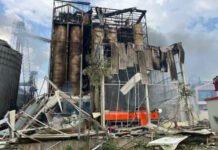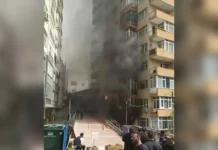On the 11th anniversary of a 2014 mining disaster in Turkey’s Manisa province, a woman whose husband was killed in the tragedy told the T24 news website that her family was still waiting for justice to be served.
Naciye Kaya is one of the hundreds of women widowed by the mining disaster, when an explosion at a coal mine in Soma on May 13, 2014 caused a fire that burned for two days and trapped nearly 600 workers underground. It was claimed that an explosion started a fire about two kilometers below the entrance of the mine, causing it to fill with toxic gas. A total of 301 miners died in what was called the nation’s worst mining disaster.
The mining company’s general manager and technical manager were both sentenced to 22 years in prison. Two other company officials received 19 years, while the chairman got 15 years. The court acquitted more than 30 from among 51 defendants who had been put on trial over the 301 deaths on charges ranging from “killing with probable intent” to “criminally negligent manslaughter.”
The verdicts handed down by the court were far lighter than those sought by prosecutors when the trial started in April 2015. Prosecutors had at the time requested that the top managers be sentenced to 25 years in prison for every single one of the 301 victims.
“Our fight for justice continues,” Kaya said. “I have never stopped, and I do not intend to.”
She explained that four months after the incident, the company’s lawyers came and said the company was not at fault and that the victims had died from their own negligence.
“My husband knew there were risks. He would say the coal was coming out too hot, but authorities were not taking necessary precautions. He would even come home, affected by toxic gas from the mine.”
Even before the disaster, miners worked in harsh conditions and weren’t allowed to leave the mine even for lunch. “They would eat underground, with coal dust and soot falling onto their food,” Kaya said.
Kaya said the sentences that were handed down were lenient as the victims had died a grueling death.
The incident also had a huge financial impact on the families, whose sole breadwinners were now dead. “They granted us a pension afterward. Then they gave us the aid money collected by the Disaster and Emergency Management Authority [AFAD]. We had a lot of debt, so we paid off some of it. With what was left, I bought a house. Right now, I receive 16,500 [$512] lira a month from the pension linked to my late husband.”
Kaya said the trauma of their father’s death profoundly affected her children, who dropped out of school shortly after the disaster.















